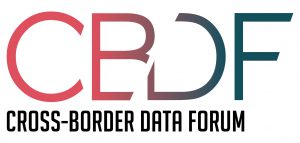The European Law Blog has published Prof. Theodore Christakis’s report from the September 25, 2019 academic workshop “E-Evidence: The Way Forward,” that was held in Brussels by the Grenoble Alpes Data Institute in cooperation with the Cross-Border Data Forum and Microsoft. The workshop included academics well known for their work on privacy, data protection, and criminal law from several countries. Also participating were representatives of the European Parliament involved with the LIBE Committee’s work on E-Evidence, including MEP and Rapporteur for the E-Evidence package Ms. Birgit Sippel.
The Report summarizes MEP Sippel’s opening remarks and the three discussion sessions: (1) E-Evidence and the Relations between EU Member States; (2) E-Evidence, Citizens, and Organizations: Which Protections, Safeguards, and Remedies?; and (3) E-Evidence and Third States: Resolving Conflict of Laws and Negotiating International Agreements.
Prof. Christakis’s report concludes that the expert meeting’s participants acknowledged the need to improve the current legal system to give law enforcement the ability to more quickly access electronic evidence for investigation of serious crimes, but also emphasized the need to “do it right” by providing necessary human rights safeguards and legal certainty for service providers. Prof. Christakis lays out six main issues that policy makers, including the LIBE committee, should address regarding the E-Evidence package:
-
- How to deal with the divergences in the criminal laws of EU Member States as well as potential rule of laws issues in some of them,
- What should be the proper role of the different Member States involved: the issuing State; the enforcing/executing State; and the “affected” State where the targeted person resides and/or is located,
- What should be the proper role and a workable regime for service providers,
- Additional human rights safeguards, including a satisfactory regime of notice to users and the possibility for targeted individuals to access realistic and effective remedies,
- Whether E-Evidence will or will not include an exclusivity provision, obliging law enforcement authorities to make requests solely under the new regime as opposed to being able to use alternative national rules and mechanisms of access to electronic evidence which could create complexities in the overall regime, and
- The need to adequately address human rights and reciprocity issues in the international data sharing agreement currently being negotiated between the EU and US
The LIBE committee is expected to publish its Report on E-Evidence in advance of its scheduled discussion of the draft on November 11, 2019.
To read the full article on the European Law Blog, please click here.
These statements are attributable only to the author, and their publication here does not necessarily reflect the view of the Cross-Border Data Forum or any participating individuals or organizations.

